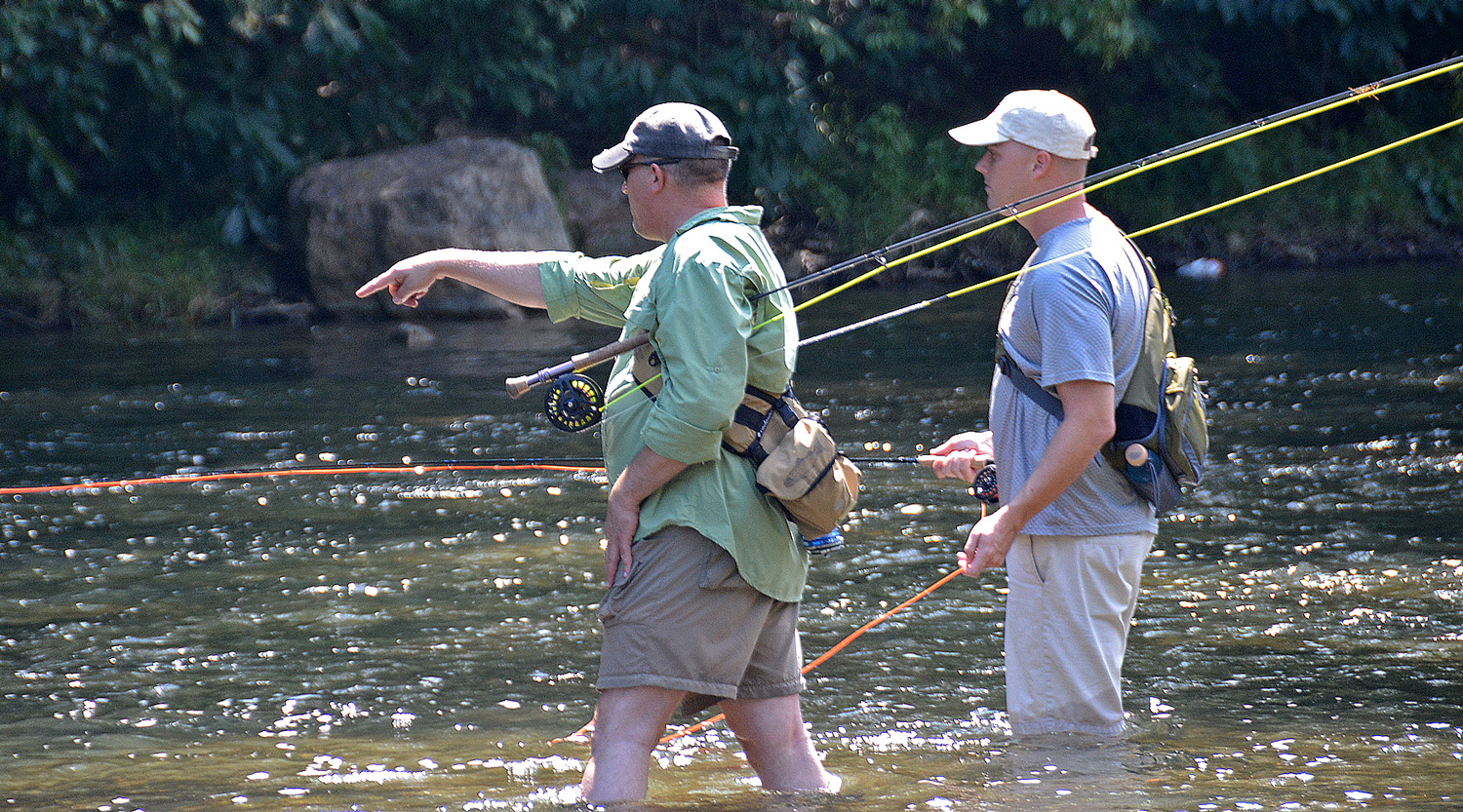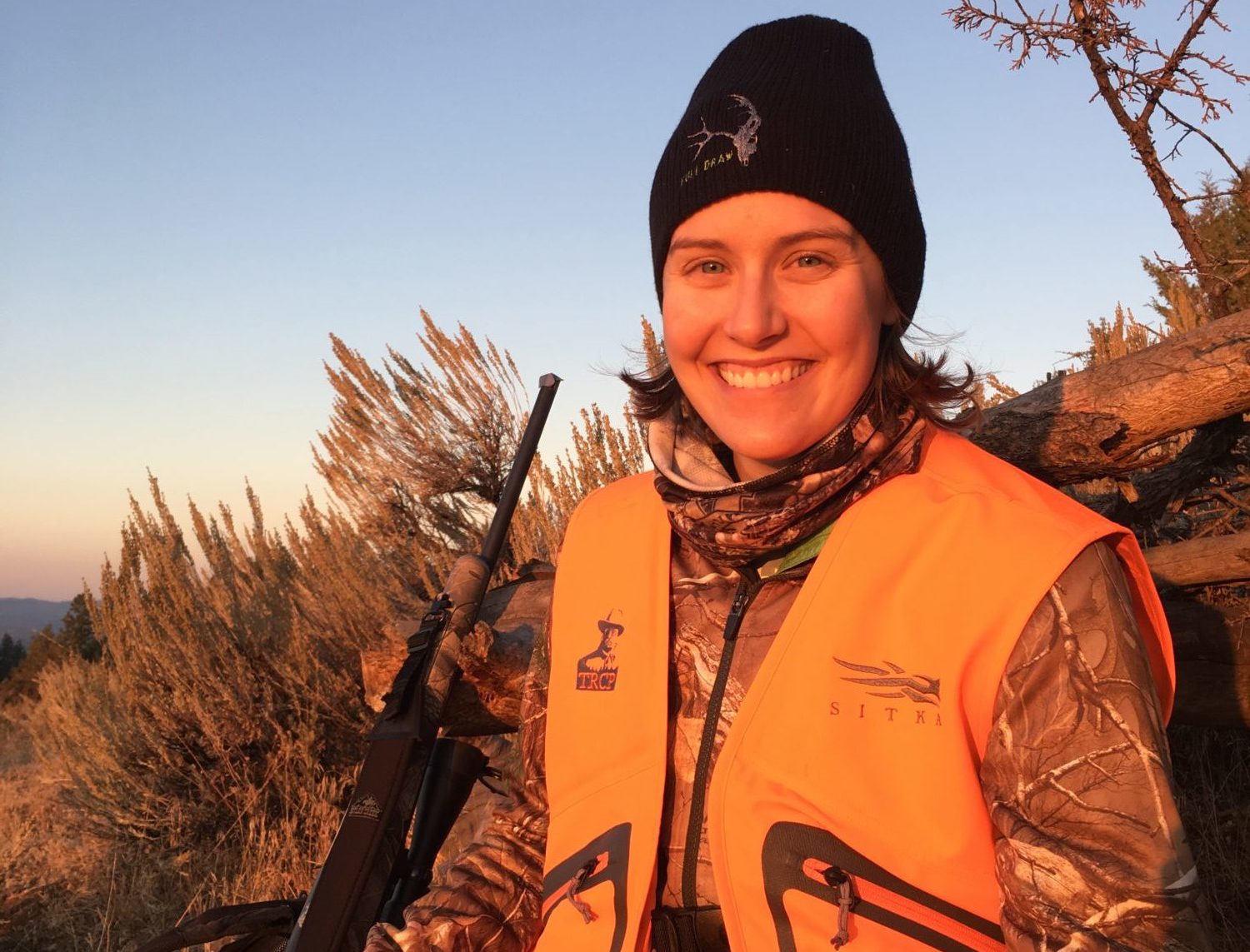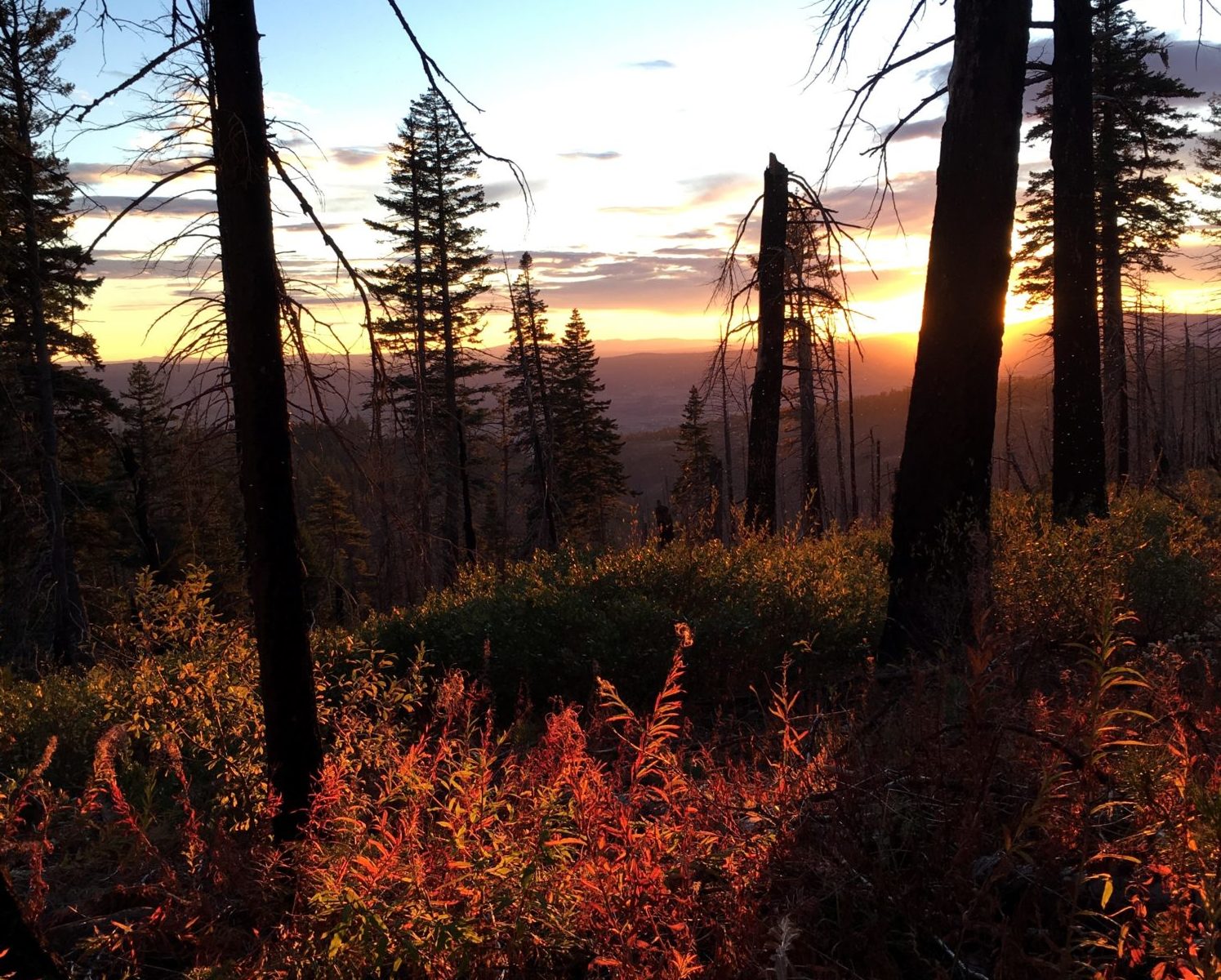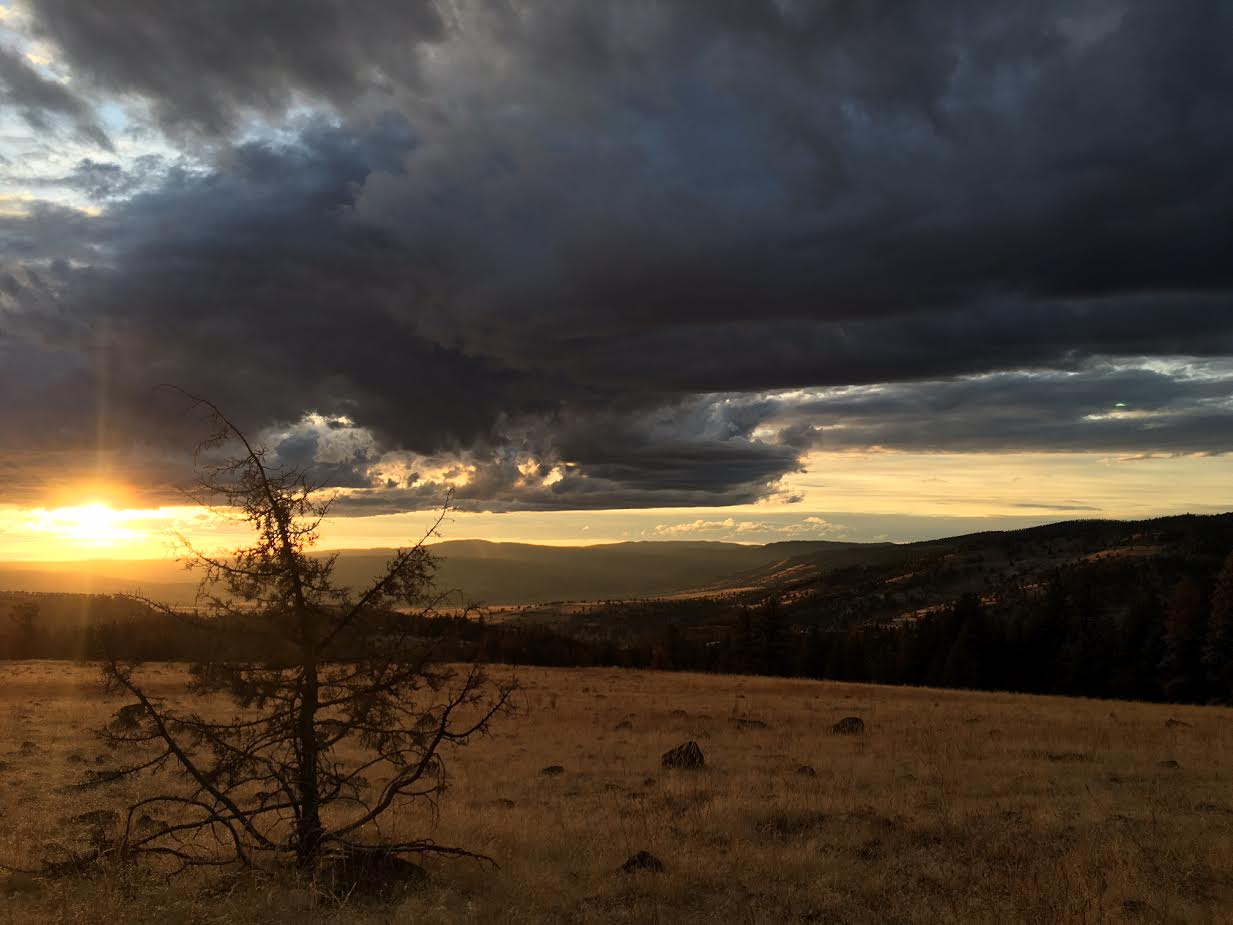Elliott 2
Do you have any thoughts on this post?
The TRCP’s scouting report on sportsmen’s issues in Congress
Administration picks continue to be put to the test before lawmakers. The Senate Energy and Natural Resources Committee held a confirmation hearing on Congressman Zinke’s (R-Mont.) possible role as the next secretary of the U.S. Department of the Interior. On Tuesday, Rep. Zinke, who is perhaps the least controversial pick among President-elect Trump’s cabinet nominees, answered questions on federal public land transfer, coal programs, energy extraction on public lands, funding for land management agencies, and other conservation issues.

The following day, the Senate Environment and Public Works Committee will hold a confirmation hearing for Scott Pruitt, Oklahoma’s attorney general, who will testify and answer questions about his agenda as the next administrator of the U.S. Environmental Protection Agency.
We’re still watching out for President-elect Trump’s pick for secretary of the U.S. Department of Agriculture, which has yet to be announced.
Budget resolutions were filed, indicating lawmaker priorities. Last week, the Senate and House passed the Fiscal Year 2017 budget resolution by the skin of its teeth, with a 51-48 vote, mostly as a legislative vehicle for the repeal of the Affordable Care Act. While budget resolutions are non-binding, they are taken into account when lawmakers sit down to draft the real deal.
We can also look to natural resources amendments, which were filed but not considered on the Senate floor last week, to predict what will be submitted for the next year’s budget resolution. The FY18 resolution will likely be much more relevant to conservation policy, and we expect it to be introduced in the Senate and House by the end of February.
Another forecast: The Clean Water Rule could be withdrawn. In order to clarify the jurisdiction of headwater streams and wetlands, Senators Joni Ernst (R-Iowa) and Deb Fischer (R-Neb.) introduced a non-binding resolution that would express Senate support for the withdrawal of the Obama administration’s Clean Water Rule.
To cap the week, Washington, D.C. is expecting an influx of visitors for the presidential inauguration. President-elect Trump will be sworn into office on Friday, January 20.
Why we can’t afford to undercut habitat and access on public lands that also support outdoor recreation jobs
Whether anyone predicted it or not, the 2016 presidential election was partially won on the promise of jobs in parts of the country where it’s tough to scratch out a living. This has quickly become a conversation about putting Americans back to work modernizing our country’s infrastructure and unleashing energy development.
President-elect Trump has promised to dig deeper into untapped shale, oil, and natural gas reserves and open up onshore and offshore leasing on federal lands—the same lands where we currently enjoy public access to hunting and fishing that is the envy of the world. Many lawmakers continue to point fingers at Obama administration policies and executive actions as holding us back from energy jobs and wealth. Yet, a huge glut of oil in the world market has driven prices to levels that we as sportsmen and consumers really like when we fill up the tank for a fishing or hunting trip—that’s basic supply and demand.
Would deregulating the fossil fuel industry and “opening up” federal public lands truly solve the problem for our rural communities? Pouring more commodities into a saturated market seems an awful lot like putting all our eggs in one basket.

The truth is that commodity-based industries can fluctuate for reasons that have nothing to do with access or availability of these resources on public lands. Just ask residents of Alaska or North Dakota about their current recessions resulting from low oil and natural gas prices. At the same time that Alaska’s energy sector was tanking, the tourism industry was reporting a robust year. Job growth was flat, but the resources needed to power outdoor recreation businesses (pristine habitat and access) were at least sustainable.
We know the numbers: The outdoor industry, which includes hunting and fishing, generates at least $646 billion in direct spending and billions more in local, state, and federal tax revenues annually. Outdoor recreation—which relies heavily on public lands in the vast American West—also supports more than 6 million jobs, many that by nature cannot be exported overseas. This segment of our economy is now an officially recognized piece of our nation’s Gross Domestic Product (GDP.)
The scenario in Alaska highlights that while outdoor recreation jobs cannot be expected to replace industry jobs, the outdoor recreation economy is a stable part of the business portfolio for rural communities—it simply cannot be ignored, diminished or allowed to be impacted by commodity extraction. There has to be a balance.
Without a doubt, energy development is a legitimate use of our public lands and a vital part of our economy, but development must be done in a way that balances commodity production with conservation of fish and wildlife habitat and recreational opportunities for sportsmen. Our lawmakers should embrace the multiple-use mandate on public lands and support this balancing act.
This is why we need effective policies like the new BLM planning 2.0 rule, which requires a deeper look at planning for conservation and development well ahead of time. The trick is ensuring that better planning does not become greater bureaucracy—energy projects that make sense should not be unduly delayed. The goal must be to plan better first, avoid the most sensitive areas that have high environmental conflicts, manage and conserve important areas, and expedite development in appropriate places.
If Trump is to follow in Theodore Roosevelt’s footsteps, as he has expressed is his goal, he must start by viewing conservation as an investment with relatively safe returns for rural communities and the next generation of hunters and anglers. We hope it’s one that will appeal to his good business sense.
A woman’s first mule deer hunt in Oregon takes her from hunting skeptic to #PublicLandsProud convert
This fall, I did something I never thought I would do—I went hunting.
I didn’t grow up with hunting traditions. In fact, five years ago, my opinion of hunting was probably more aligned with a stereotype than it was based on an actual person or group of people I knew who hunted.
Then I met Kevin, and suddenly found myself dating a hunter. You know him as TRCP’s Western field associate.
Through Kevin’s passion for hunting and the outdoors, I found myself immersed in a new world. We cooked wild game together, and I sat in on fascinating conversations among his friends regarding hunting ethics, outsider perceptions, and conservation.
I began to see hunting as a culture, and it changed my perspective enough that I thought about giving it a try myself.

A Humbling Hunt
This fall, against all odds, I drew tags for a mule deer buck and cow elk in Oregon—something that I hadn’t totally prepared for, especially since we wound up moving to Missoula, Mont., right before the season started. On the long drive back to the Beaver State, I studied YouTube videos on how to quarter a deer and pondered if there were any quick car exercises that could make up for my woeful lack of preparation in the physical fitness department.
We met up with Alex, a friend from Oregon, and made camp. This was Alex’s third year hunting mule deer, though he had yet to harvest one. Still, I remained confident—how hard could it be?
Sitting against a tree on opening morning, I listened to the forest waking up all around us as the sun rose over the mountains, and I felt a sense of awe. The landscape was breathtaking. If it weren’t for the tag in my pocket, I wouldn’t have seen that sunrise or experienced any of the lessons I learned that day. I was starting to understand what Kevin and his friends had been going on about.

I had no luck on opening day, but each encounter with an animal renewed my sense of excitement. As we crept up over a hill in late morning, Kevin stopped abruptly and whispered, “I see one.” I craned my neck to spot the animal he was looking at, adrenaline pumping. The deer was resting under a tree, partially obscured, but when its head turned, we both saw that it was a doe. That night, I remember having vivid dreams of seeing a buck instead and pulling off the perfect shot. When I woke up the next morning, I was giddy, ready to try again.
The next weekend, as Kevin and I were trudging up yet another steep hill while glassing the opposite hill for movement, our radio went off—Alex had shot a forked horn mule deer, his first! With no regard for any unseen animals that might be nearby, we whooped and hollered over the radio, sharing in his excitement. We got his coordinates and headed his way for the pack out.
I watched as Alex and Kevin field dressed the buck, seeing it transition from being an animal on the ground to different cuts of meat hanging from the trees. Alex kept the hide and cut out the ribs, wanting to savor each bit of his trophy and show full respect to the animal. By the time we loaded our packs and headed out with headlamps aglow, only a pile of guts and a few bones were left behind. For me, a big part of why I wanted to hunt was being able to provide my own meat and know where it came from. In today’s world where so much of our food processing is out of sight, this experience was the circle of life made tangible—an eye-opening experience of hunting for food and wasting nothing.
Lessons Learned

Although I never did pull the trigger, being a witness to Alex’s achievement was enough to get me hooked, though I don’t know if I’ll ever be obsessed with it the way Kevin is. Hunting is humbling in a way that I hadn’t expected. I went into it with starry eyes, thinking I would punch my tag on opening morning, but it wasn’t easy. I came back to camp at night tired, hungry, and cold. I can only imagine how difficult conditions would be without healthy habitat, plentiful big game, and access to public lands. So, you could say I learned the value of conservation at the same time that I was paying my dues in the field.
All in all, I was refreshed by the beauty and adventure of public lands, no matter the outcome. I’m aware now more than ever of the incredible bounty that public lands can provide, but I’ve also witnessed their fragility. The adventures I had this fall would not have been possible without them. Public lands are ours to enjoy, but first and foremost, they are ours to defend. I now truly know what it means to be #publiclandsproud, and I can’t wait to try again next fall.
Laura Sligh grew up in the tiny town of Holland, Mich. and currently lives in Missoula, Mont. When she’s not adventuring on public lands with her boyfriend, TRCP’s Western field associate Kevin Farron, and black Lab Leo, she’s knitting baby hats with their cat on her lap, or trying to master a new wild-game recipe.
It’s a new year and a new chapter in Washington, and we’re geared up to tackle the future of conservation with a completely redesigned trcp.org.

With our new look, we’ll continue to bring you up to speed on the conservation issues that matter to you, but it’ll be a lot more fun. Here’s what to expect:
We hope our fresh design will make it easier for you stay in-the-know and engaged on the front lines of conservation. Let us know what you think of our makeover by emailing info@trcp.org. We’d love to hear from you.
TRCP has partnered with Afuera Coffee Co. to further our commitment to conservation. $4 from each bag is donated to the TRCP, to help continue our efforts of safeguarding critical habitats, productive hunting grounds, and favorite fishing holes for future generations.
Learn More
Sign up below to help us guarantee all Americans quality places to hunt and fish. Become a TRCP member today.

For every $1 million invested in conservation efforts 17.4 jobs are created. As Congress drafts infrastructure legislation, let's urge lawmakers to put Americans back to work by building more resilient communities, restoring habitat, and sustainably managing our water resources.